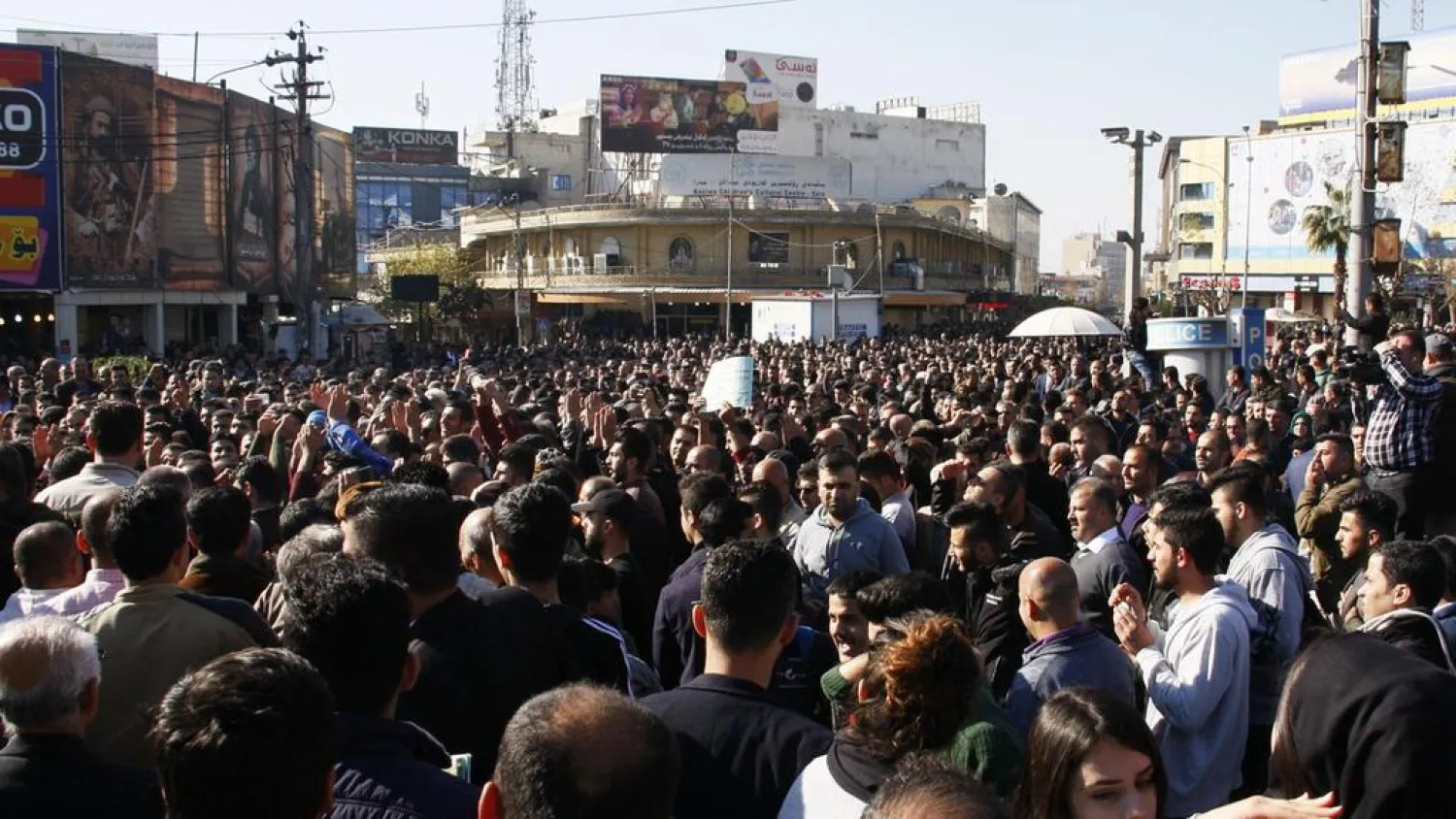Protests continued for the second day in a row on Tuesday in the Iraqi Kurdistan Region.
Rallies calling for the resignation of the government, fighting corruption and improving the economic situation erupted in four cities in the region, leaving five people dead and dozens wounded, said health sources.
The demonstrations took place in Halabja, Kifri, Koy Sanjaq and Ranya.
A health spokesman in Ranya said that the protests in the city left five people dead, while 80 were injured.
Saeed Suleiman, a Kurdish Democratic Party official, accused the protesters of opening fire at the party headquarters.
Demonstrators in Koy Sanjaq, which is controlled by the Patriotic Union of Kurdistan of late Iraqi President Jalal Talabani, meanwhile set fire to the mayor’s office.
In al-Sulaimaniya, security forces dispersed protesters after opening fire in the air to prevent them from gathering in Saray square.
Security forces have since deployed heavily on main roads and near party headquarters.
In Kifri, hundreds stormed the offices of the Kurdistan Democratic Party after pelting the building with stones. The security forces had to open shots in the air to disperse them.
"You're incapable -- incapable of defending the disputed areas and incapable of ruling the Kurdistan region," one demonstrator shouted.
The disputed areas are a large swathe of historically Kurdish-majority territory outside the semi-autonomous region that Kurdish leaders have long wanted to incorporate in it.
Tensions in Kurdistan escalated into opposition demonstrations in wake of the political and economic crisis that followed former President Masoud Barzani’s decision to go ahead with the September 25 independence referendum.
The Baghdad government, which had opposed the vote, retaliated by imposing economic restrictions on the semi-autonomous region.









